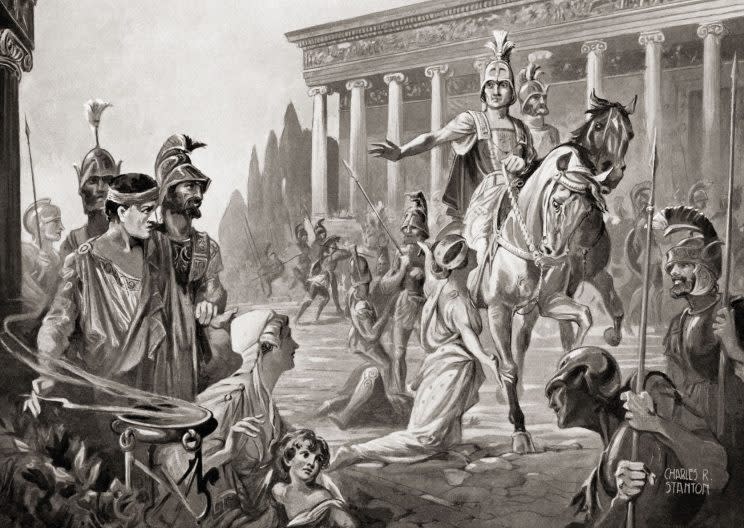British academic claims to have found will left by Alexander the Great

He famously conquered the world by his early 30s.
And Alexander the Great may also left a last will and testament, which could have finally been discovered more than 2,000 years after his death, potentially bringing to an end one of history’s most tantalizing mysteries.
A British expert claims to have found the famous Macedonian king’s dying wishes in an ancient text that has been “hiding in plain sight” for centuries.
The long-dismissed last will and testament divulges Alexander’s plans for the future of the Graeco-Persian empire he ruled, and his succession in which, it is claimed, he named his son as heir to his throne.
MORE: The 20 most visited cities in the world
It also reveals his burial wishes and discloses the beneficiaries to his vast fortune and power.
Evidence for the ‘lost’ will can be ‘found’ in an ancient manuscript known as the Greek Alexander Romance, a book of fables that grew up around Alexander’s exploits.

Historians have long believed that the last chapter housed a political pamphlet that contained Alexander’s will, but until now have dismissed it as a work of early fiction.
But a 10-year research project undertaken by London-based Alexander expert David Grant suggests otherwise.
The comprehensive study concludes that the will was based upon the genuine article, if skewed for political effect.
Buried by Alexander’s generals who knew the truth, it has vexed historians for 2,000 years.

The revelation is detailed in Grant’s new book, In Search of the Lost Testament of Alexander the Great, which hits the shelves this week.
If he is correct, it would be proof of “one of the most influential military and political mandates in the ancient world”.
Undefeated in battle, Alexander the Great carved out a vast empire stretching from Macedonia and Greece in Europe, to Persia, Egypt and even parts of northern India by the time of his death aged 32.
Only five barely intact accounts of his death at Babylon in 323 BCE survive to the present day.
According to one account from the Roman era, Alexander died leaving his kingdom ‘to the strongest’ or ‘most worthy’ of his generals.

In another version, he died speechless after being comatose for some days, without making any plans for succession. Based on these testimonies, historians have ignored the will.
But Grant, a classics graduate, considered the hypothesis to be “highly suspect” given Alexander’s attention to detail and the power-hungry nature of his generals.
He believes that Alexander’s original will was suppressed by his most powerful generals, because it named his then unborn half-Asiatic son, Alexander IV, and elder son Heracles, as his successors.
Grant said: “The surviving texts make it quite clear that none of the generals with Alexander at Babylon would have accepted their authority being subordinated to a son bred from a race they had conquered.”

 Yahoo News
Yahoo News 


